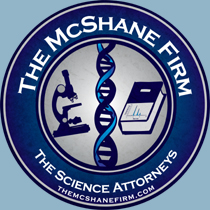I have lamented before about the horrible state of affairs that has developed in modern forensic science and in particular instrumentation. As an industry, the machine manufacturers seek to automate and make these processes so simple that they no longer require true understanding of the underlying science or the process that makes the machine do […]

Limitations of Forensic Odontology
In the past, we have blogged on the severe limitations on pattern recognition as a forensic science discipline. (Pattern Recognition is it Science or an Art?). In fact, the National Research Council of the National Academy of Sciences pointed to one form a pattern recognition as being most problematic: forensic odontology. Most broadly defined, it is […]

Standards, Controls, Calibrators, and Verifiers, Oh my…
Lions and Tigers and Bears… Verifiers, Calibrators and Controls… Oh my! Sometimes a criminal defense attorney can at times feel like Dorothy in the Wizard of Oz in that we are transported from the relative safety of home (the courtroom) to the weird world of Oz (the laboratory). There are unusual and often times conflicting […]

Why single column Gas Chromatography-Flame Ionization Detector analysis is not forensically or scientifically acceptable
There is a large difference between a single column analysis and a dual column analysis when it comes to the ability to most correctly identify and quantitate an unknown in the scientific world. In forensic science, we are constantly testing unknowns. What is meant by this is that we have a sample that is seized […]

Police Science: Re-purposing of Capilliary Columns for Drugs of Abuse testing
As I have written before a lot of forensic science is really legitimate analytical chemistry that is re-purposed for the courtroom, but without proper scientific method validation before deploying it into this new purpose. This re-purposing of legitimate techniques and employing them without examining the true validity of doing so is not scientific. I call […]

Method Validation for Lawyers Part 6: What is quality assurance and quality control?
In a series of posts, we are going to talk about method validation. Part 1: Introduction-Is it valid, invalid or non-validated? Part 2: What is method validation? Part 3: Can we use someone else’s validated method? Part 4: What triggers verification, re-validation or out right new validation of a method? Part 5: What are the […]

Method Validation for Lawyers Part 5: What are the essential terms in method validation?
In a series of posts, we are going to talk about method validation. Part 1: Introduction-Is it valid, invalid or non-validated? Part 2: What is method validation? Part 3: Can we use someone else’s validated method? Part 4: What triggers verification, re-validation or out right new validation of a method? Part 5: What are the […]

Method Validation for Lawyers Part 4: What triggers verification, re-validation or out right new validation of a method?
In a series of posts, we are going to talk about method validation. Part 1: Introduction-Is it valid, invalid or non-validated? Part 2: What is method validation? Part 3: Can we use someone else’s validated method? Part 4: What triggers verification, re-validation or out right new validation of a method? Part 5: What are the […]

The Particular Witness Rule as established in Bullcoming v. New Mexico
SPECIAL EDITION NEWS FLASH: [Full Disclosure: I was one of the co-authors on the NACDL/NCDD amicus curiae briefs in the case of Bullcoming v. New Mexico. You can hear the audio of the oral argument here. I have waited several hours on purpose to post here in order to try to remain objective.] On September […]

Practice good hygiene and get fired or convicted
Alcohol-based antiseptics used to kill bacteria on your hands could also potentially kill your career if you’re required to undergo regular testing for alcohol consumption, according to a new study. Even though they’re rubbed onto the skin rather than ingested, alcohol-based hand hygiene products can still cause the alcohol levels in your bloodstream to spike […]

Emerging Science: Dried Blood Spot Analysis in Toxicology
Dried Blood Spot (DBS) or Dry Plasma Spot (DPS) analysis as applied to forensic analytical chemistry (toxicology) for Drugs of Abuse testing is an emerging science that there has been some recent activity in the peer reviewed literature. This post will examine this emerging technology and evaluate the benefits and the limitations of this assay. […]


